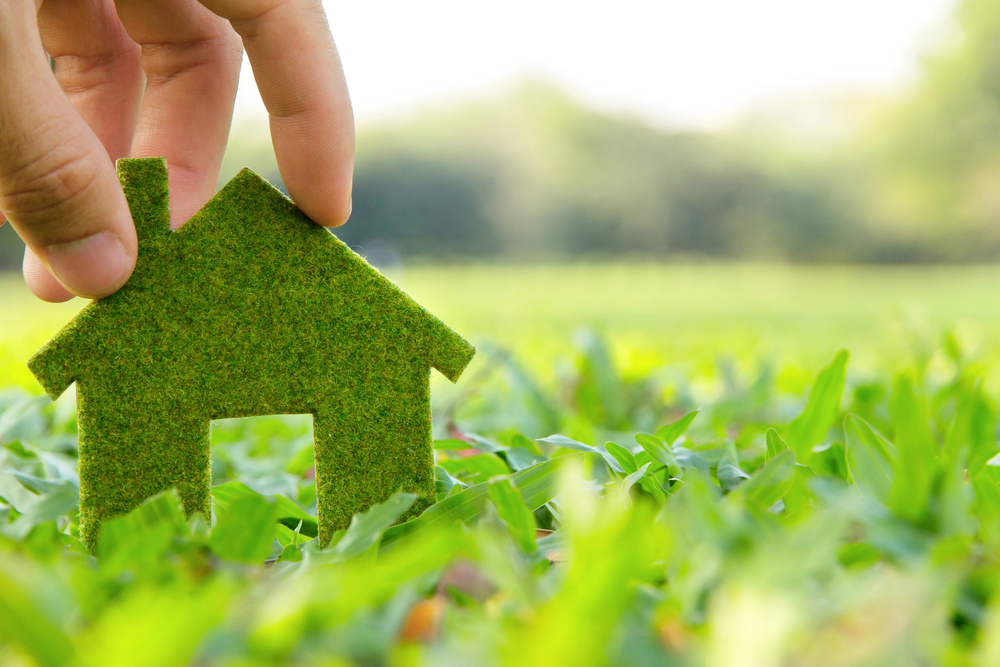
Why Insulation Is Important for Environmental Sustainability
Insulation refers to the process of reducing heat transfer between two objects or spaces. It can be achieved through various materials, such as foam, fiberglass, and cellulose, which act as barriers against heat flow.
Insulation is crucial for both residential and commercial buildings because it provides numerous benefits not only for the inhabitants but also for the environment. In this article, we will discuss why insulation is important for environmental sustainability and how it can contribute towards a greener future.
What is Environmental Sustainability?
Environmental sustainability refers to the ability to meet current resource needs without compromising the ability of future generations to meet their own needs. It is about finding a balance between economic growth and environmental protection.
In today's world, we are facing numerous environmental challenges such as climate change, air pollution, and depletion of natural resources. These issues not only impact our health and well-being but also have severe consequences for the planet. To combat these challenges and ensure a better future for generations to come, it is essential to embrace sustainable practices in all aspects of our lives.
Plus, with the world's population continually growing and urbanization on the rise, there is a greater demand for resources, energy, and space. This puts immense pressure on our environment, making it even more critical to adopt sustainable practices.
Why Insulation is Important for Environmental Sustainability
Insulation plays a significant role in environmental sustainability for several reasons. These includes:
Reducing energy consumption
Insulation is known for its ability to reduce energy consumption in buildings. By creating a barrier against heat flow, insulation helps maintain a consistent indoor temperature, which reduces the need for heating and cooling systems.
According to the Department of Energy, heating, and cooling account for about 50% of the energy used in a typical American home. This means that by insulating our homes and buildings, we can significantly decrease our energy consumption, thereby reducing greenhouse gas emissions and mitigating the effects of climate change.
Plus, with the increasing demand for energy around the world, it is crucial to find ways to conserve and reduce our use. Insulation provides a simple yet effective solution to achieve this goal.
Minimizing carbon footprint
Insulation not only reduces energy consumption but also helps minimize carbon footprint. As mentioned earlier, heating, and cooling systems account for a significant portion of energy use in buildings, and most of this energy comes from burning fossil fuels.
Fossil fuels are a major source of carbon emissions, contributing to climate change and air pollution. By reducing our reliance on these energy sources through insulation, we can directly reduce our carbon footprint. This is because insulation reduces the need for heating and cooling systems, which in turn decreases the amount of energy produced from fossil fuels.
Improving air quality
Insulation also plays a role in improving indoor air quality, which has a direct impact on the environment. Without proper insulation, air can easily seep through cracks and gaps in buildings, bringing in pollutants and allergens from the outside.
With insulation, these openings are sealed, preventing outside air from entering the building and keeping the indoor air clean. This is especially important for individuals with respiratory issues, as poor air quality can exacerbate their condition.
Furthermore, by reducing the need for heating and cooling systems, insulation also helps decrease the amount of air pollutants released into the environment. This not only improves indoor air quality but also contributes to overall environmental health.
Preserving natural resources
Lastly, insulation plays a crucial role in preserving natural resources. As mentioned earlier, the demand for energy and resources is continuously increasing with the growing population and urbanization.
By reducing our energy consumption through insulation, we can help preserve natural resources such as oil, gas, and coal. These non-renewable resources are finite and will eventually run out if we continue to consume them at our current rate.
Moreover, the production of these resources also has a significant environmental impact, such as air and water pollution. By reducing our reliance on them through insulation, we can help mitigate these negative effects and preserve natural resources for future generations.
By understanding the importance of insulation in environmental sustainability, we can make informed decisions to incorporate it into our homes and buildings. This not only benefits us personally but also contributes to a greener and more sustainable future for all. Let's embrace insulation as one of the many solutions towards a healthier planet.
Does Insulation Have Any Negative Impact on the Environment?
While insulation has numerous benefits for the environment, it can also have some negative impacts if not properly installed or disposed of. For example, certain types of insulation materials, such as spray foam, may release harmful chemicals into the air during installation.
Moreover, some older homes may contain asbestos insulation which can be hazardous to both human health and the environment if disturbed during renovations or demolition.
However, these negative impacts can be minimized by using proper installation techniques and ensuring safe disposal of old insulation materials. It is crucial to research and choose eco-friendly and sustainable insulation options that do not harm the environment during production, installation, or disposal.
Additionally, improper insulation practices such as over-insulating or using the wrong type of insulation for a particular area can lead to moisture build-up and mold growth. This not only affects indoor air quality but also contributes to environmental damage.
Furthermore, if insulation is not well-maintained, it may become less effective over time, leading to increased energy consumption and potential waste of resources. Thus, regular maintenance and proper disposal of old insulation are essential for long-term environmental sustainability.
Plus, some insulation materials may not be recyclable or biodegradable, contributing to waste and pollution in landfills. To combat this, research and choose eco-friendly insulation options that are sustainable and can be recycled or disposed of properly.
Can Insulation be Used in Other Areas Beyond Buildings?
Insulation is not limited to buildings and homes; it can also be used in various other areas to reduce energy consumption and benefit the environment.
For example, insulation can be used in transportation vehicles such as cars, trains, and airplanes to minimize heat loss and improve fuel efficiency. This not only reduces carbon emissions but also saves resources by reducing the need for fuel.
Insulation can also be used in industrial settings to improve energy efficiency and reduce greenhouse gas emissions. By insulating pipes, boilers, and other equipment, less energy is required to maintain desired temperatures, resulting in cost savings and environmental benefits.
Furthermore, insulation can be used in agricultural buildings such as barns and greenhouses to regulate temperatures and preserve heat, reducing the need for additional energy sources.
In colder regions, insulation can also be used in infrastructure such as roads and bridges to prevent frost damage. This increases the lifespan of these structures and reduces the need for repairs or replacements, which require a significant number of resources and energy.
Mistakes to Avoid When Insulating
While insulation is an effective way to reduce energy consumption and benefit the environment, there are some common mistakes that should be avoided during installation. Here are a few examples:
- Over-insulation: Adding too much insulation can cause moisture build-up and lead to mold growth, which not only affects indoor air quality but also contributes to environmental damage.
- Using the wrong type of insulation for the area: Each space has different insulation needs, and using the wrong type of insulation can lead to inefficiency and potential issues down the line. It is essential to research and choose the appropriate insulation for each area.
- Not sealing air leaks: Insulation alone cannot prevent heat loss or gain; it must be paired with proper air sealing techniques to be effective. Not sealing air leaks can result in wasted energy and resources, as well as decreased comfort levels.
- Not maintaining insulation: Over time, insulation may become less effective due to settling or damage. It is crucial to regularly check and maintain insulation to ensure it is functioning at its maximum capacity.
By avoiding these common mistakes, we can ensure that our insulation efforts are efficient and effective in reducing energy consumption and preserving natural resources for a greener future.
Contact Koala Insulation for Your Insulation Needs
Koala Insulation of West Florida is a trusted and experienced insulation company serving the greater West Florida area. Our team of experts has over 15 years of experience in construction and home services, making us knowledgeable in all aspects of insulation. We are committed to delivering efficiency and improving comfort through our high-performance insulation services.
We understand the importance of proper insulation for saving energy, increasing home comfort, reducing noise, and promoting eco-friendliness. That's why we offer a range of services including blown-in attic insulation, spray foam insulation, air sealing, insulation removal, and more. We also work on residential and industrial projects.
At Koala Insulation, we take pride in our promptness and cleanliness - ensuring no mess is left behind after our 1-day insulation service. We also offer project financing options for your convenience.
Contact us today at (941) 500-4000 or book an appointment online to experience the Koala Insulation difference in the Osprey, Sarasota, Nokomis, Venice, Bradenton, Parrish, Myakka City, Ruskin, Apollo Beach, Sun City Center, Riverview, Wimauma, Palmetto, and surrounding areas. We also serve counties such as Sarasota, Manatee, Hillsborough, Lee, Charlotte, and De Soto.
FAQs
How does improving energy efficiency with insulation contribute to environmental sustainability?
Improving energy efficiency through insulation reduces the need for heating and cooling systems to work as hard, which in turn decreases energy consumption and minimizes carbon dioxide emissions, contributing to a healthier environment.
Can eco-friendly insulation materials improve indoor air quality?
Yes, eco-friendly insulation materials, unlike some traditional insulation materials, are less likely to emit volatile organic compounds (VOCs) into the air. This contributes to improved indoor air quality by reducing the presence of harmful pollutants in your home.
How do recycled materials in insulation support environmental sustainability
Using recycled materials in insulation, such as recycled denim or plastic, helps reduce waste in landfills and cuts down on the energy and resources used to produce new insulation materials. This approach supports a more sustainable and eco-friendly construction practice.
What makes fiberglass insulation less favorable compared to other eco-friendly insulation materials?
While fiberglass insulation is effective, it's not always considered the best choice for environmental sustainability due to its production process, which can consume significant energy and sometimes release VOCs. Eco-friendly insulation materials, on the other hand, often utilize sustainable sources and have a lower environmental impact.
Conclusion
In conclusion, proper insulation is crucial for energy efficiency, cost savings, and environmental sustainability. By choosing eco-friendly insulation options, avoiding common mistakes, and utilizing insulation in various areas beyond buildings, we can make a significant impact on reducing our carbon footprint and preserving natural resources for future generations.
Also, by enlisting the help of experienced and knowledgeable insulation professionals like Koala Insulation, we can ensure that our insulation efforts are efficient and effective. So don't wait any longer, make the switch to proper insulation today for a greener and more sustainable tomorrow!
Ready to book your free insulation evaluation?
We have 3 convienant ways for you to get in touch
We Provide Insulation Services to the Following West Florida Areas
OSPREY, SARASOTA, NOKOMIS, VENICE, BRADENTON, PARRISH, MYAKKA CITY, RUSKIN, APOLLO BEACH, SUN CITY CENTER, RIVERVIEW, WIMAUMA, PALMETTO, ELLENTON, TERRA CEIA, CORTEZ, BRADENTON BEACH, LONGBOAT KEY, BOCA GRANDE, PLACIDA, ROTONDA WEST, PORT CHARLOTTE, ENGLEWOOD, ARCADIA, NORTH PORT
Counties Served
SARASOTA, MANATEE, HILLSBOROUGH, LEE, CHARLOTTE, DE SOTO
Zip Code
34229, 34230, 34231, 34233, 34234, 34236, 34237, 34238, 34239, 34241, 34242, 34249, 34275, 34285, 34201, 34202, 34211, 34212, 34219, 34232, 34235, 34240, 34243, 34251, 33570, 33572, 33573, 33579, 33598, 34221, 34222, 34250, 34203, 34205, 34207, 34208, 34209, 34210, 34215, 34217, 34228, 33921, 33946, 33947, 33981, 34223, 34224, 34269, 34286, 34287, 34288, 34289, 34291, 34292, 34293

